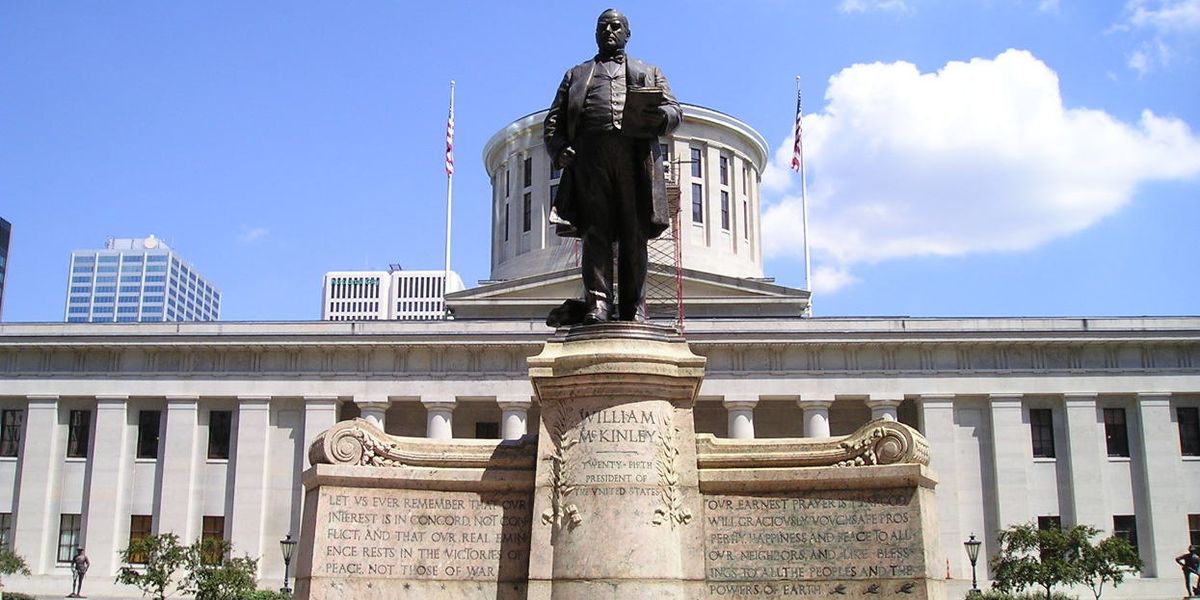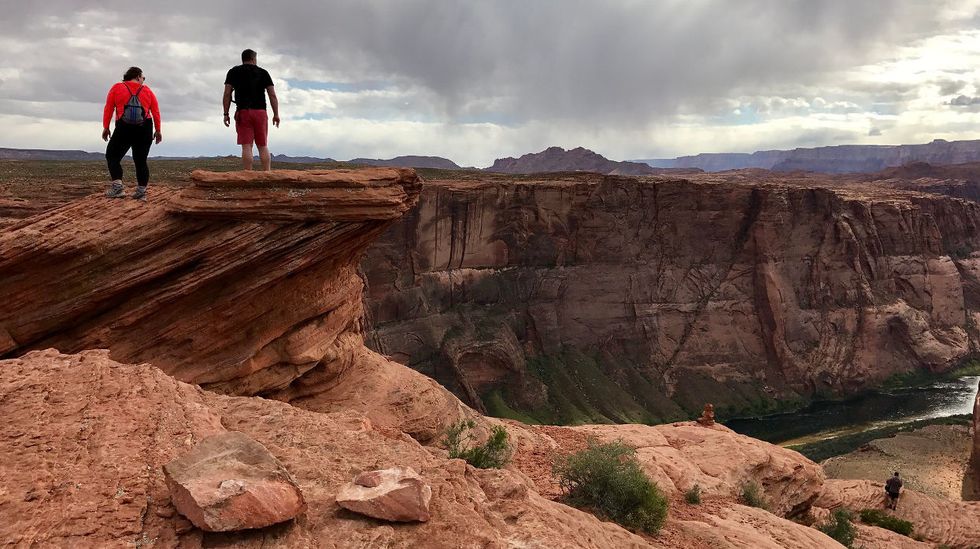
Reading from the Book of Genesis of environmental law
Several very old laws are the forebears of 21st Century practice...for better or worse.
I've been writing about the environment for years, but here are three presidents I don't think I've ever mentioned: James Monroe, Chester Alan Arthur, and William McKinley.
Each signed versions of a law that morphed—by McKinley's time—into a cornerstone environmental law.
In 1824, Monroe signed the first of more than a dozen laws called the Rivers and Harbors Act.
This is the time in history when the possibly-mythical Johnny Appleseed was planting trees throughout "the West" (Pennsylvania, Ohio, Indiana) at a time when said trees went largely un-hugged.
For the rest of the 19th Century revisions of the Act focused on clearing navigable streams and ports for commercial ships and barges. No laws directly addressed increasing filth—sewage, trash, industrial waste—that a growing America placed in its waterways.
Renewed and bolstered every few years, the Act saw a thorough upgrade during Arthur's three years as president. But it didn't get around to actually protecting rivers and harbors till an 1899 update.
Also called the Refuse Act, it was the first time that dumping waste into waterways carried a criminal penalty.
Violators faced a maximum $2,500 fine or one year's imprisonment. With the creation of the Environmental Protection Agency still some 71 years away, the Army Corps of Engineers was tasked with enforcing the law and issuing permits to those who really, really needed to dump into waterways.
Sewage treatment was still virtually unheard of. The first American chemical treatment plants opened in Worcester, Massachusetts, and East Orange, New Jersey, around 1890, according to www.sewerhistory.org, the gold standard in poop news.
Storm and sanitary sewage ran virtually unabated into waterways for many more years. The Federal Water Pollution Control Act (1948) pulled together more serious enforcement. It was remade as the Clean Water Act in 1972. Richard Nixon vetoed the ambitious bill as too expensive, but bipartisan environmental sentiment resulted in an override.
The Act has never realized its optimum goal of "fishable, swimmable" waterways from coast to coast, but it's regarded as a roaring success in otherwise living up to its name.
Important precursors

The Antiquities Act has been a presidential tool in protecting National Monuments. (Credit: anokarina/flickr)
John Lacey was an Iowa Congressman who pre-dated Teddy Roosevelt as a Republican conservationist.
He was instrumental in passing the Forest Reserve Act in 1891, creating the precursors to U.S. National Forests. Concern over some of America's most colorful birds vanishing led to the Lacey Act of 1900. The law restricted international trade in species, and is credited with reversing the trend of converting bright plumage into the trendy women's hats of the day. It's also a precursor to the Endangered Species Act.
In 1906, Lacey championed the Antiquities Act. Originally intended to preserve Native American sites in the Southwest from tourists and artifact hunters, presidents from Teddy Roosevelt to Obama have used the Act to create sizable National Monuments, like Bears Ears, a sprawling Utah site designated by President Obama but reduced in size by President Trump.
Air pollution was left largely to state and local governments until 1955, when President Eisenhower signed the Air Pollution Control Act. Major re-writes evolved and strengthened the law in 1965 and 1991.
Let's bring in a fourth 1800's president and two laws he signed in 1872. Ulysses S. Grant gave us the statute now known as the 1872 Mining Law, which allows leasing of some public lands for mining for as little as $5 an acre.
Little has changed in a century-and-a-half, and hard-rock miners can claim an acre of federal land for the price of a bag of Doritos. And the U.S. is a permissive landlord, imposing minimal requirements for companies to clean up their messes.
Environmentalists, backed by some budget hawks, have tried for years to get Congress to modernize or rescind the law, with no success.
Sailor mongering
In 2002, Greenpeace activists boarded a freighter laden with rainforest mahogany. The U.S. Attorney's office used a 19th Century law to prosecute the Greenpeacers, charging them with sailor mongering under a law last enforced in 1890. The law was designed to prevent unscrupulous mariners from coaxing landlubbers with women of ill repute and demon rum, then kidnapping them to crew on ocean voyages. A judge dismissed the charges in 2004.
Of course, the laws covering clean air and water, and those protecting species and sensitive lands are all under assault by the Trump Administration, and by the government departments and agencies that were intended to support them.
For all the gains and recent losses in environmental law, these issues have never truly gained a foothold as a major issue in presidential politics.
As Donald Trump tends to say when questioned on just about anything..."We'll see."
Banner photo: William McKinley Monument (Credit: THX0477/flickr)
Peter Dykstra is our weekend editor and columnist. His views do not necessarily represent those of Environmental Health News, The Daily Climate or publisher, Environmental Health Sciences. Contact him at pdykstra@ehn.org or on Twitter at @Pdykstra.













